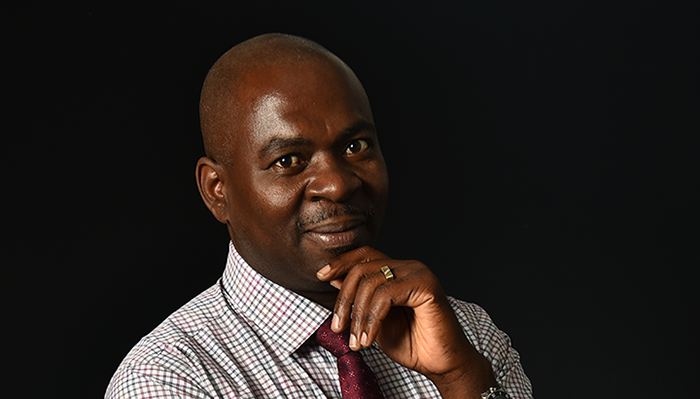

Prof Elijah Baloyi, Research Professor in the Research Institute of Theology and Religion, College of Human Sciences
"Since ancient times, patriarchal structures have been ruled exclusively by men, shaping the lives of women, families and society. This system was used to promote women abuse and oppression," says Prof Elijah Baloyi, Research Professor in the Research Institute of Theology and Religion at Unisa’s College of Human Sciences.
In 2025, patriarchy continues to dominate in spaces such as the religious and traditional structures.
As reflected in his PhD study, "Patriarchal structures, a hindrance to women’s rights", Baloyi has always had an issue with African male traditions that dominate women, depriving them of a life of freedom in a free South Africa.
His research focus is on understanding the problems caused by the patriarchal set-up that have become stumbling blocks for the rights of women in the church and society. It was this focus that revealed to him the need to seek indigenous knowledge that would help address both decolonisation and gender-based violence within the African context.
As an ordained minister who advocates for liberation theology and operates within a discipline with a historical background of promoting gender disparities due to its conservatism, Baloyi has been at the forefront of conducting research that addresses problems and seeks solutions at grassroots level.
He has secured an official partnership for Unisa with the Congress of Traditional Leaders in South Africa (CONTRALESA) for the next three years. Unisa and CONTRALESA, through collective community engagement, have arranged webinars, seminars and various other forms of in-person interaction.
In addition, they plan to host summits at which communities will be given the opportunity to play an active role in cultural change by offering their indigenous knowledge.
An influential leader in his discipline, Baloyi says, "Being a research professor helped me to initiate a team of researchers, the Erosion Research Team, which enables me to lead 15 emerging members from five African countries to write and publish from my research data".
The resulting engaged scholarship projects – such as the “Erosion of African Burial Traditions” project – are designed to enable Baloyi and the Erosion Research Team to recover previously muted epistemologies surrounding African burial traditions and rituals. These efforts contribute to the broader transformation agenda and the decolonisation of knowledge, a call that was highlighted during the #FeesMustFall movement in 2015-2016.
Baloyi, a National Research Foundation C2-rated researcher, is a former Chair of the Department of Philosophy, Practical and Systematic Theology at Unisa. With more than 70 journal articles and book chapters published in accredited scholarly publications, he is also a supervisor and mentor to four postdoctoral fellows with whom he also co-authors.
Baloyi’s recent work delves deeper into gender inequality, culture and tradition, allowing the world a preview of his work through journal articles such as the following:
He also publishes in his native language, Xitsonga, a language he says is the most undermined in South Africa. In 2024, he received an award from the African Language Association of Southern Africa for a Xitsonga article entitled, “Ku susa vukoloni eka nhlamuselo ya rito ‘nsati’ na ‘nuna’ eka Xitsonga – dyondzo ya nsusavukoloni,” which was published in a high-impact journal.
Baloyi is the first Black African member of the Center of Theology Inquiry (CTI) at Princeton in the USA. The Center is known as the only institute in the world for advanced study in theology. Here, scholars engage intentionally with crucial issues surrounding theology and its relevance to the modern, universal society. He received a R1 million grant from Princeton. He was – along with nine other world-class scholars from multiple disciplines – involved in a six-month collaborative research programme at CTI exploring the topic, "thriving in diverse contexts".
The ecumenical aspect of Unisa theology has enabled Baloyi to move away from reductionist theology, becoming a theologian who is open to new ideas and perspectives, which allows him to avoid being prescriptive and instead listen to the voices of the oppressed and subjected.
* By Mpho Moloele, PR and Communications, Department of Research, Innovation and Commercialisation
Publish date: 2025-10-06 00:00:00.0